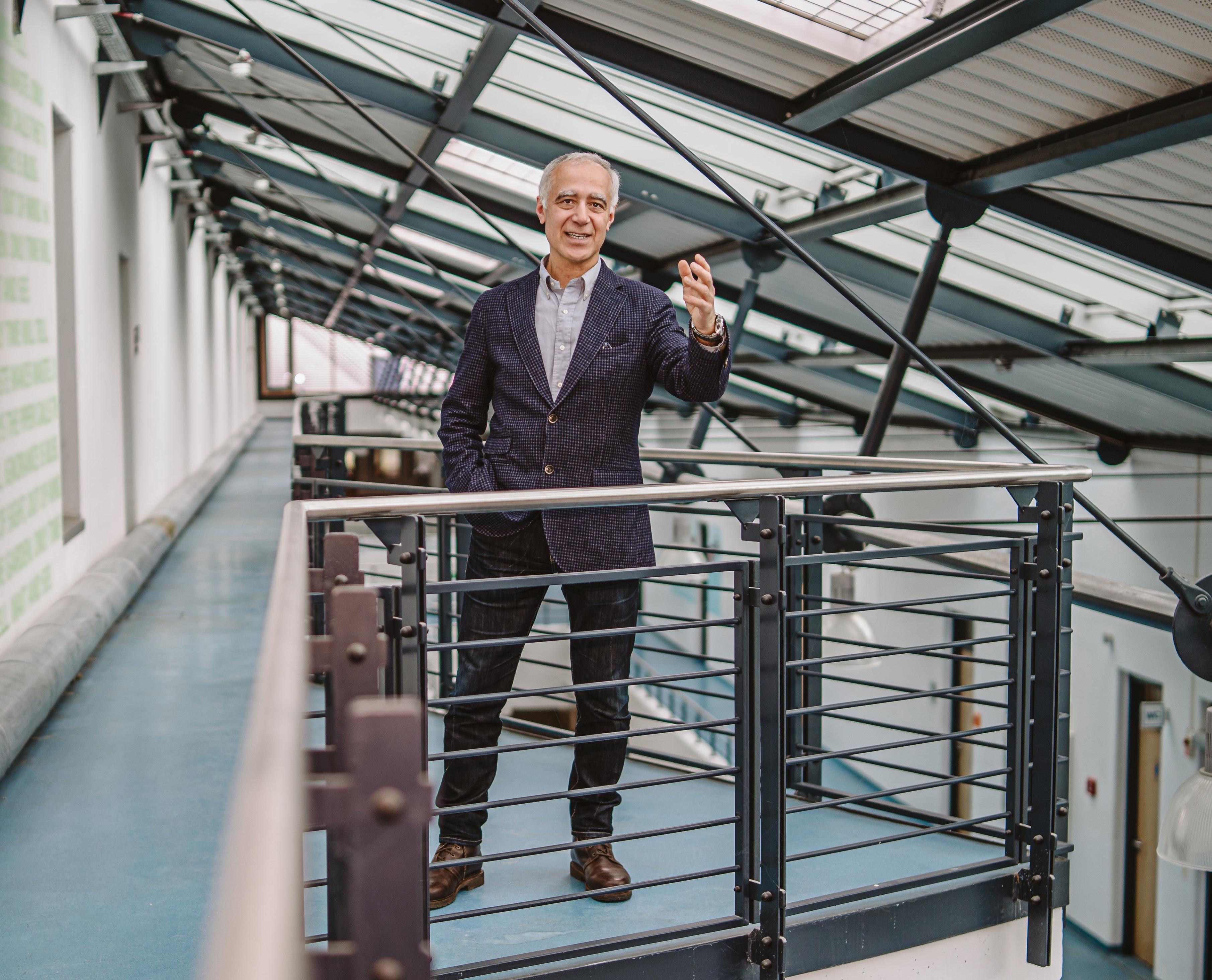
3 minute read
FutureFoodInsects youtu.be/pwN0mGPX6qA Tasting sustainability
from "foresee - recognising signs, devising solutions, shaping the future", Annual Report of H-BRS 2022
Citizen science brings research to life
What do insects taste like? How can crowdmapping contribute to a more climate-friendly city? The “Campus to World” project strengthened the transfer of ideas, knowledge, and technology between H-BRS and society from 2018 to 2022. In the fifth and final year of the project, citizen science once again addressed exciting questions and applied results to practice. Many of the measures will remain permanently in place even after the project ends.
The online exhibition “Future Food Insects – Sustainability Tastes Good” in cooperation with the Leibniz Institute for the Analysis of Biodiversity Change (LIB) at the Museum Koenig Bonn, met with great public interest. Insects, a common food in Asia, are also used in our culture as a sustainably-produced source of protein. The virtual exhibition allows visitors to tour the main hall of the museum. In the 3D simulation, visitors can find out about insects that are on the menu and collect ingredients for recipes in a hidden objects game presented in a virtual kitchen. The aim of this first cooperation project with the museum is to make science “tangible, approachable, perceptible and also understandable”, says Professor Michaela Wirtz, Vice President for Transfer, Innovation and Sustainability at Hochschule Bonn-Rhein-Sieg. The playful conception of the exhibition reached the target audience, young people, in particular.
Gardening for the environment: What role does garden soil play as a useful climate protector?
Designing your own city
Bridge-building was also the goal of the five Citizen Labs. Under the motto “Participate – Research – Educate”, people from Bonn and the Rhein-Sieg district were able to exchange and discuss ideas with scientists as equals face to face. The climate-friendly transformation of the city of Sankt Augustin was the topic of the “Citizen Lab: SDG (Sustainable Development Goals) Workshop”. According to Professor Wiltrud Terlau, the project offered a unique opportunity to “actively shape the city, which is best known to the citizens themselves”. A method called crowdmapping was used for this purpose. Participants could enter places with potential for improvement – places without shade trees where it gets too hot in the summer, for instance – on an interactive map of their place of residence. Although the “Campus to World” project is now over, crowdmapping will continue.
The same goes for the workshop series “Gardening for the Environment”. In this initiative, citizens can collect soil samples from their own gardens and analyse them with the help of researchers. With the data already collected, the university wants to develop a recommendation for action for cities and municipalities in the region to help them make better use of the ecosystem benefits of green spaces.
Citizen Science Forum
The success of citizen science made the university the ideal venue for the Citizen Science Forum in May 2022, entitled “Global – Regional – Local: with Citizen Science for the UN Sustainable Development Goals”. The German-speaking citizen science community exchanged ideas at the conference, which takes place annually at changing locations. At the “Market of Opportunities”, research institutions, universities, museums and initiatives presented their citizen science projects.
More: Online Exhibition: https://digital.leibniz-lib.de/future-food-insekten
Information on citizen science: www.h-brs.de/de/izne/buergerwissenschaften
Workshops in Jordan
As an expert in transfer projects with Jordanian universities, Rainer Herpers, professor of computer science, enlisted colleagues from the Department of Electrical Engineering, Mechanical Engineering and Technical Journalism (EMT) for the DAAD project “YURL – Remote Lab at Yarmouk University”. Teachers and students from H-BRS travelled to Irbid together in December 2022. There they set up the technical equipment for teaching via remote labs, imparted the relevant technical and didactic knowhow and organised two practice-oriented workshops. YURL came to a successful end with the trip but will continue in a different format. A future Erasmus+ project will continue working on the topic of remote labs – even beyond Jordan’s borders.
KLUGER transfer to practice
How do we transfer knowledge from science to society? “KLUGER Transfer“ (“More Clever Transfer“) provides answers. The topics of climate, environment and health build the focus of the cooperation project between Hochschule Bonn Rhein Sieg’s International Centre for Sustainable Development (IZNE) and the Max Planck Institute for Chemistry (MPIC). The aim of the tandem project is to develop, test and communicate innovative methods and tools. Together, the two institutions are designing a toolbox filled with valuable tools for sustainable knowledge transfer. The basic research of the MPIC and the applied science of H-BRS will thus evolve into a collaborative effort rich in ideas.
More: ȹ www.kluger-transfer.de
Roustiam Chakirov
is Professor for Control Engineering at the Department of Electrical Engineering, Mechanical Engineering and Technical Journalism
“Science thrives on international exchange. Since I come from Russia, cooperation with universities from Eastern Europe was an obvious choice. Thanks to DAAD funding, we started an Eastern partnership with a Ukrainian and a Russian university 13 years ago. Joint research, mutual visits by researchers and students – all this was fruitful and enriching for us. The Russian invasion of Ukraine put an end to this. At that time, my colleague Dr Oleksandr Velihorskyi from Chernihiv Polytechnic National University (CPNU) was just visiting Sankt Augustin. I took him in at first, and he is safe here. But many other Ukrainian colleagues are not. Unfortunately, the CPNU was also badly damaged by the Russian army. We have jointly developed remote labs for experiments on electronic components to supervise students remotely. I can’t foresee what will happen next. But our relationship with the CPNU is stronger than ever and will continue to be supported by the DAAD.”

TREE presents its diverse research projects in a virtual lab: miscanthus grass, for instance, as a renewable source of raw material for polyurethane plastics or the reforestation of damaged forest areas using drones.










